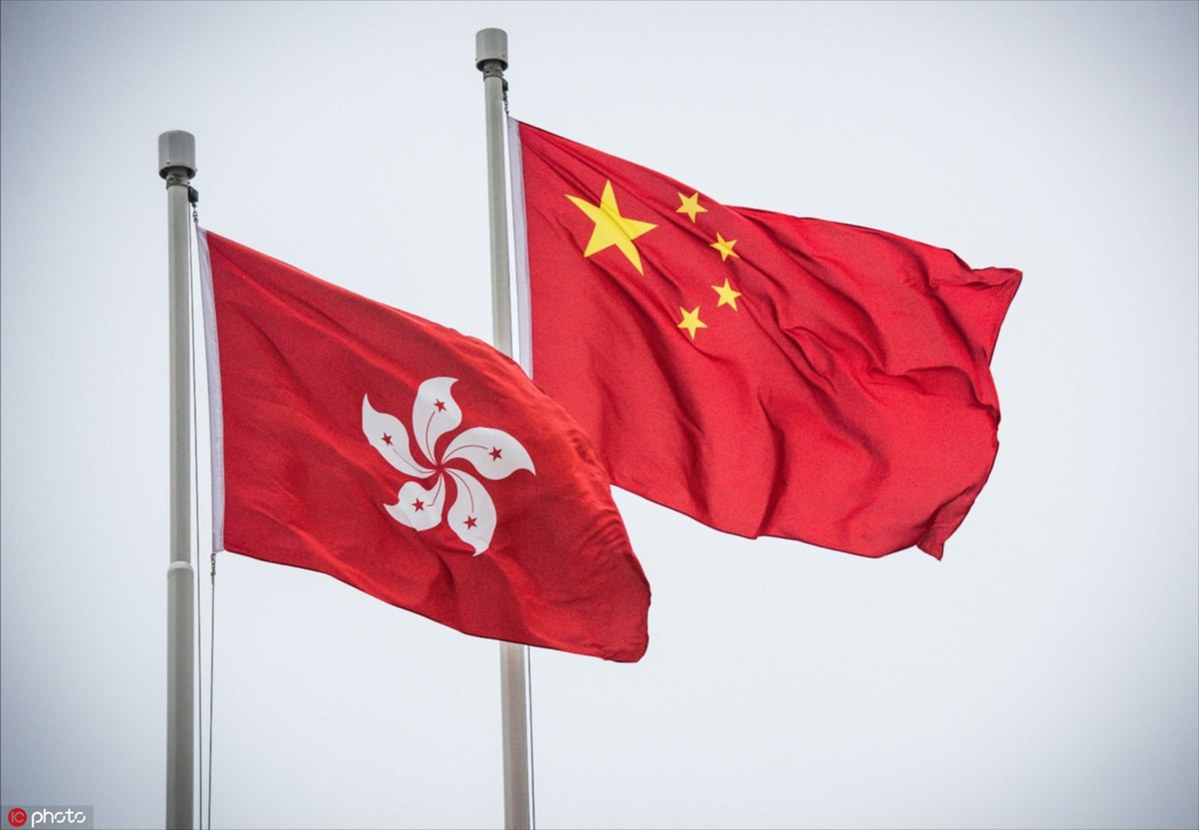
Chief Executive Carrie Lam Cheng Yuet-ngor was being overly diplomatic when she said on Wednesday that many unfair comments made about Hong Kong over recent events show "a lack of understanding" of the policy of "one country, two systems".
Calling a spade a spade is a more preferred virtue in many cases. After its implementation for over two decades since the handover on July 1, 1997, anyone who genuinely cares about Hong Kong's well-being has no problem pointing out the very purpose of the "one country, two systems" principle: Maintain the city's long-term stability and prosperity after its return to the motherland to set an example for Taiwan's future reunification with the Chinese mainland.
To that end, the innovative political framework was designed and implemented to allow the capitalist system to maintain its free running in Hong Kong after its reunification with the mainland and became a special administrative region directly under the central government. It is a testament to Beijing's sincerity in upholding the "one country, two systems" principle and keeping Hong Kong's capital system and lifestyle unchanged for 50 years that Hong Kong's capital system has kept its vigor and remained robust, that "one country, two systems" has run smoothly for most of the past two decades.
Anyone who has paid attention to Hong Kong, particularly members of the international business community whom Lam was addressing during her Wednesday interview by The Wall Street Journal, should have witnessed the great success of Hong Kong under "one country, two systems": It has maintained its status as a top-ranking international financial, trade and logistics center, has been crowned the freest economy in the world for more than two decades, and has been taking pride in being one of the places having the most robust rule of law in the world, as repeatedly testified by the World Justice Project Rule of Law Index. Not just Hong Kong and the nation as a whole have benefited significantly from the city's success over the past two decades but also many others who have close trade ties with the city, including the international business community.
The "many unfair comments made about Hong Kong" Lam referred to during her Wednesday interview have not arisen from "a lack of understanding" of the "one country, two systems" principle but from thinly veiled ideological bigotry or the need to promote some political agendas or geostrategic interests in Hong Kong. As any fair-minded person can see, those unfair comments are part of a much broader campaign aimed at turning Hong Kong into a place that serves the interests of certain parties at the expense of China.


